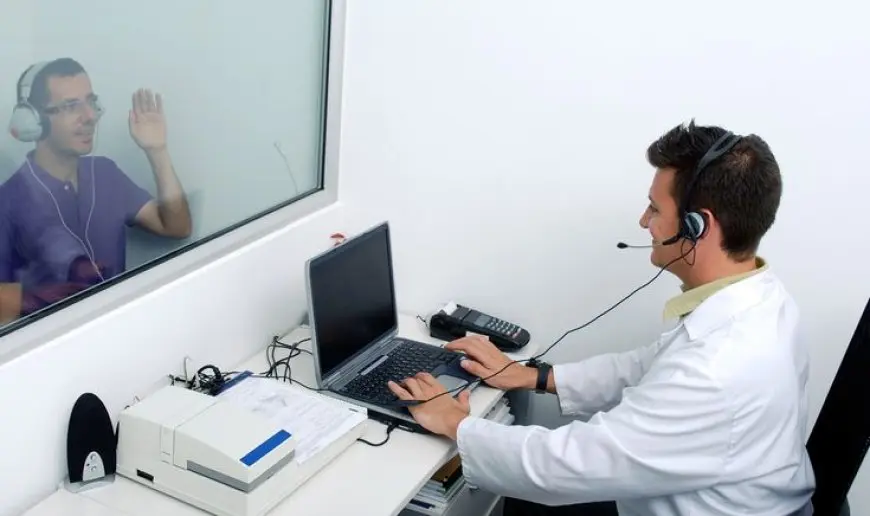How to Improve Your Communication Skills
How to Improve Your Communication Skills

Effective communication is a crucial skill in both personal and professional settings. Whether you're delivering a presentation, participating in meetings, or simply having a conversation, being able to express yourself clearly and listen actively can make a significant difference in your relationships and success. Improving your communication skills is an ongoing process, but by focusing on certain key strategies, you can become a more effective communicator.
Active Listening
One of the most important aspects of communication is listening. Active listening means giving full attention to the speaker, understanding their message, and responding thoughtfully. It involves not just hearing the words but also paying attention to non-verbal cues such as body language, tone, and facial expressions. By practicing active listening, you show respect for the other person and create an environment where they feel heard and understood.
To improve your active listening, try to focus on the speaker, avoid interrupting, and ask clarifying questions if necessary. This not only helps you better understand the conversation but also strengthens your relationships by showing empathy and respect.
Clarity and Conciseness
Effective communication is not just about what you say, but also how you say it. Being clear and concise in your speech ensures that your message is easily understood by the listener. Avoid using jargon, long-winded explanations, or unnecessary details that might confuse or distract from your main point.
When conveying a message, be direct and to the point. Take time to organize your thoughts before speaking, and if you’re addressing a complex issue, break it down into smaller, manageable parts. This will help your audience follow along and ensure that your message is delivered effectively.
Non-Verbal Communication
Non-verbal cues, such as body language, facial expressions, and gestures, play a significant role in communication. In many cases, your body language may speak louder than your words. For instance, maintaining eye contact can convey confidence and interest, while crossed arms might signal defensiveness or disinterest.
To improve your communication, be mindful of your non-verbal signals. Pay attention to your posture, facial expressions, and gestures to ensure they align with your verbal message. This consistency will help you convey sincerity and build trust with your audience.
Empathy and Emotional Intelligence
Empathy is the ability to understand and share the feelings of another person. In communication, empathy allows you to connect with others on a deeper level and respond in a way that acknowledges their emotions and perspectives. This is particularly important in difficult or sensitive conversations.
Developing emotional intelligence, which involves being aware of and managing your own emotions as well as recognizing emotions in others, is also key to improving communication. When you are emotionally intelligent, you can navigate conversations more effectively, maintain control in stressful situations, and respond appropriately to others' emotions.
Asking Questions
Asking questions is an effective way to engage in a conversation and ensure you have a clear understanding of the topic at hand. Questions show that you are actively involved in the conversation and genuinely interested in the other person’s perspective. Open-ended questions, in particular, encourage more detailed responses and promote a deeper discussion.
In addition to asking questions, make sure you are listening carefully to the answers. This will help you gain insight into the other person’s thoughts, which can guide your responses and keep the conversation on track.
Giving and Receiving Feedback
Feedback is a vital component of communication. Providing constructive feedback helps others improve, while receiving feedback allows you to grow and refine your own skills. When giving feedback, be specific, focus on the issue rather than the person, and offer suggestions for improvement. When receiving feedback, approach it with an open mind and avoid becoming defensive.
Feedback, when done correctly, can enhance communication and help you build stronger, more collaborative relationships.
Practice and Patience
Like any skill, communication improves with practice. The more you engage in conversations, give presentations, and participate in discussions, the more comfortable and effective you’ll become. Be patient with yourself as you work on improving your communication. It may take time to develop new habits and strategies, but consistent effort will lead to progress.
If you make mistakes along the way, don’t be discouraged. Each experience is an opportunity to learn and grow as a communicator.
Adaptability
Effective communication also involves being adaptable to different situations, audiences, and cultural contexts. Tailoring your communication style to fit the environment ensures that your message is received positively and understood by everyone involved.
For instance, you may need to adjust your tone, level of detail, or approach when speaking to different audiences, whether it’s a formal meeting with executives or a casual conversation with a friend. Being aware of these differences and adjusting accordingly can help you communicate more effectively.
Improving your communication skills is a valuable investment that can positively impact all aspects of your life. By focusing on active listening, clarity, non-verbal communication, empathy, and feedback, you can enhance your ability to express yourself and connect with others. Communication is an ongoing journey, and with consistent practice and self-awareness, you can continue to develop and refine this essential skill.







